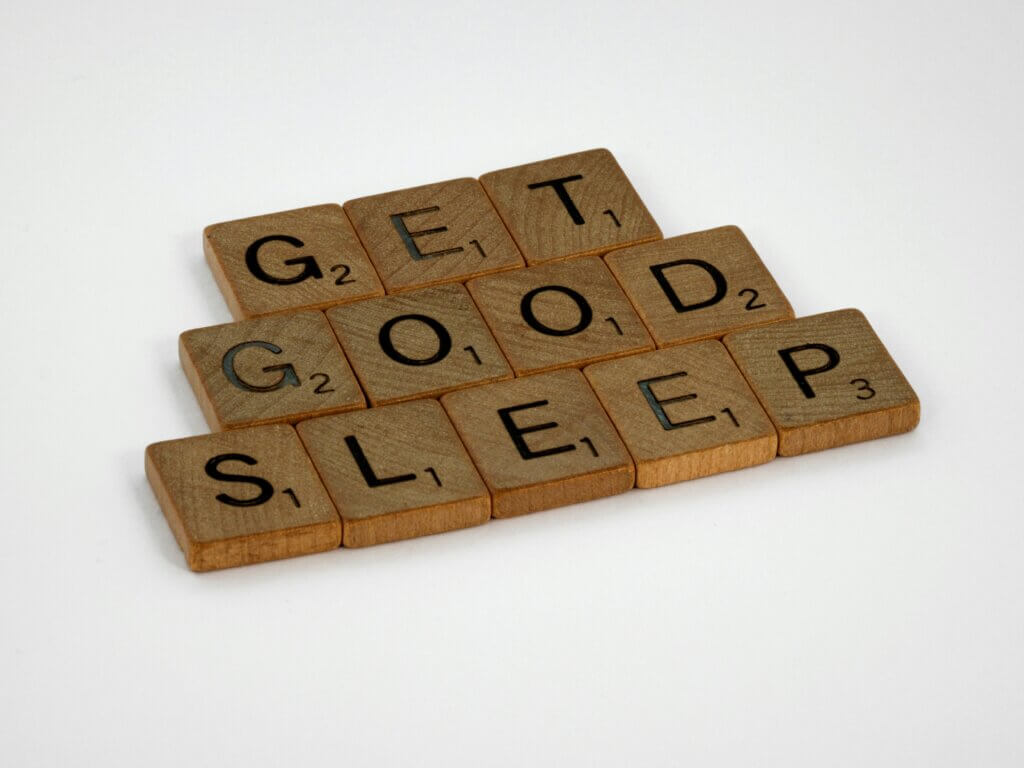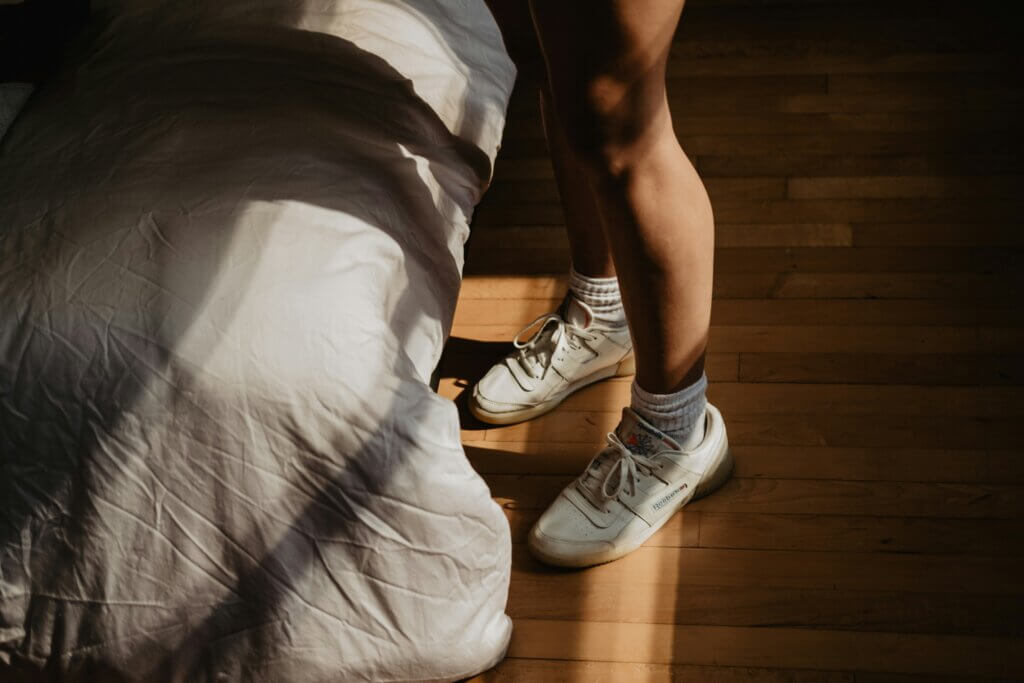You hit the gym hard, fuel your body with the right foods, and stay consistent with your training but you aren’t seeing the results of muscle gain or fat loss that you expected? The problem might not actually be in the quality of your workouts or diet. In fact, the answer might be hiding where you least expect it: in your sleep quality.
Sleep is often the most overlooked aspect when it comes to fitness, yet it plays a massive role in both muscle growth and fat loss. In fact, it doesn’t matter how intense your workouts are or how clean your nutrition is, if you are not getting enough sleep. The truth is, your body doesn’t really build muscle or burn fat in the gym, it does that while you’re resting, especially during deep, quality sleep.
In this article, we’ll break down exactly how sleep affects your recovery, metabolism, hormones, and overall performance. Whether you’re aiming for fat loss, to get stronger, or just feel more energized, understanding the connection between sleep and fitness is essential for real and long-term progress. Let’s dive in and help you get truly fit – all while you are sleeping.
Why Sleep is Important for Fitness

Let’s start with the basics: when you sleep, your body enters a highly active recovery state. This lets your muscles to repair, hormones to regulate, and your body to actively burn fat. Missing out on sleep doesn’t just just make you feel tired, it disrupts almost every system in your body that supports your fitness goals.
Sleep and Muscle Recovery
After a challenging workout, your muscles need to rest and during this time they’re rebuilding to be even stronger. This happens primarily during deep sleep, that is when the body releases human growth hormone (HGH), a key player in muscle repair and growth. Without enough quality sleep, your body cannot fully repair during this critical recovery window.
Sleep and Fat Loss
Sleep also influences your metabolism and regulates your appetite. When you don’t sleep enough, your body produces more ghrelin (the hunger hormone) and less leptin (the satiety hormone), which can easily lead to overeating. Inadequate sleep also lowers your metabolic rate while resting, which makes it harder to burn fat even when you’re at rest.
The Science Behind Sleep and Training Performance

Your physical performance can be largely influenced by the lack of sleep, considering such factors as hormonal balance, muscle repair, protein synthesis, and energy recovery.
Hormonal Balance
Sleep can have a major impact on several hormones that are crucial to muscle growth and fat loss. Because as was mentioned, HGH peaks during deep sleep. Testosterone, another essential hormone for muscle building in both men and women, also gets a boost overnight. At the same time, poor sleep increases cortisol, the stress hormone, which can lead to muscle weakness and fat gain.
Cellular Repair and Protein Synthesis
When you are asleep, your body is repairing tissues and synthesizing proteins, which are vital for muscle recovery. This is when your body takes the protein you’ve eaten throughout the day and uses it to rebuild and grow muscle tissue targeted during your workout. Without adequate sleep, this process is compromised and your muscles cannot undergo full recovery process.
Energy Restoration
Apart from carbs, sleep is also essential for restoring glycogen levels in your muscles. Glycogen is what fuels your body for exercise. When you’re sleep-deprived, your energy reserves aren’t fully replenished, which means your next workout might feel harder and ultimately be less productive.
Sleep Deprivation and Its Impact on Fitness Progress

Now let’s have a look at the negative results of cutting your sleep short.
Drop in Workout Performance
Sleep deprivation has been shown to impair strength, endurance, coordination, and even motivation to train. Over time, this can lead to reduced workout intensity, or you might lose the motivation to hit the gym at all.
Slower Recovery Times
Lack of sleep delays muscle repair and recovery, so you feel sore for longer, which increases the time you need between workouts. This can be especially frustrating if you’re on a structured training plan.
Increased Risk of Injury
You are risking to suffer an injury if you workout when your muscles are not fully recovered. Additionally, when you’re tired, your reaction time is slower, and your focus, and coordination are affected. This increases your risk of injury during both workouts and everyday activities.
Fat Gain Despite Training
Even with regular exercise, sleep deprivation can cause your body to store more fat and lose muscle mass. This means you could be doing everything else right but still be moving further away from your fitness goals and not seeing the fat loss that you want.
How Much Sleep Do You Really Need?

Although sleep needs might vary from person to person, most adults should aim for 7 to 9 hours of quality sleep per night. While athletes and those with intense training routines may need even more to support recovery and performance.
What matters just as much as quantity is the quality of your sleep. Deep, uninterrupted sleep is what helps mostly with recovery and hormonal benefits. Tossing and turning for eight hours isn’t even the same as sleeping soundly for seven.
Practical Tips to Improve Sleep for Better Fitness Results

1. Create a Consistent Sleep Schedule
You can try going to bed and waking up at the same time every day, even on weekends. This helps regulate your rhythm, and improves sleep quality and recovery.
2. Limit Caffeine and Alcohol
Caffeine can stay in your system for up to 8 hours. Try cutting off caffeine after 2 p.m. or at least in the evenings. Alcohol may make you feel sleepy but it will disrupt your deep sleep quality.
3. Consider Your Sleep Environment
Keep your bedroom dark, cool, and quiet. Additionally, you can invest in blackout curtains, use a white noise machine if needed, and keep the temperature between 60-65°F (15-18°C).
4. Try a Relaxing Nighttime Routine
Find out what works for you when it comes to relaxing. Take a warm shower, do some light stretching, meditation, or reading. This tells your body it’s time to relax and prepares you for quality sleep.
5. Don’t Train Too Close to Bedtime
While exercise helps you sleep better overall, intense training right before bed can work in a different way. It is best to try to finish your workouts at least 2-3 hours before going to sleep.
6. Avoid Electronic Devices Before Bed
Avoid screens at least 30-60 minutes before bedtime. The blue light emitted from phones, tablets, and TVs can suppress melatonin, which is the hormone that plays an important role in your sleep cycle.
7. Watch What You Eat at Night
Heavy or high-sugar meals before bed can disrupt sleep. Opt for a light, protein-rich snack like Greek yogurt or some fruit if you need something before bed.
The Bottom Line
Sleep should not be just a luxury or something to squeeze in when you can. Sleep should not be overlooked as it is an essential component of your fitness journey. If you’re training hard and eating well but still not seeing the muscle gains or fat loss you want, it might be time to consider changing your sleep habits.
Quality sleep boosts muscle recovery, balances fat-burning hormones, enhances exercise performance, and keeps your appetite and energy in check. By making quality sleep your new healthy habit, you’re giving your body what it needs to true progress.
So, when next time you will think about skipping sleep to fit in a late-night workout or binge another episode, remember that your fitness gains might actually depend more on your pillow than your dumbbells.
Make rest a part of your routine because getting fit while you sleep isn’t just a catchy idea. It’s a science-backed and approach for true results. Additionally, check out this article about zone 2 cardio approach.
So, sleep well, train smart, and stay strong.



